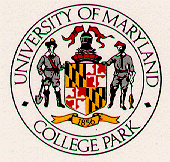

COURSE NAME: Pathogenic Microbiology (BSCI 424) (Formerly MICB 440)
CREDIT: 4 credits
PRE-REQUISITE: BSCI 223 (MICB 200) or equivalent first-year college course in General Microbiology with laboratory experience
COURSE OBJECTIVE: Pathogenic Microbiology (BSCI 424) consists of two lectures, and two laboratory sessions per week. The course objective is to provide an understanding of the relationship between pathogenic microorganisms and humans or other animals. The main emphasis will be in the area of bacteriology with attention given to identification, cellular structure, pathogenic mechanisms, genetics of disease, epidemiology, serology, and prevention and treatment.
| CLASS TIME: | Lecture -- | Tu & Th; 11:00-11:50A.M |
| Laboratory -- | See Schedule of Classes | |
| CLASS LOCATION: | Lecture -- | Jimenez Bldg. Room 0220 |
| Laboratory -- | Microbiology Building, Rooms 1135 or 1143 |
| CLASS TIME: | Lecture -- | Tu & Th; 7:00-7:50P.M |
| Laboratory -- | Tu & Th; 8:00-9:50P.M | |
| CLASS LOCATION: | Lecture -- | Microbiology Bldg. Room 1207 |
| Laboratory -- | Microbiology Building, Rooms 1135 or 1143 |
| LECTURE TEXTS: | Medical Microbiology. 3rd Edition, P.R. Murray, K.S. Rosenthal, G.S. Kobayashi and M.A. Pfaller. Mosby, 1998. |
|
| Microbial Pathogenesis Lecture Supplements. 1st Edition, D.M. Rollins and S.W. Joseph. Kendall-Hunt, 1999. | ||
| LAB TEXTS: | A Photographic Atlas for the Microbiology Laboratory. 2ndEdition, M.J. Leboffe and B.E. Pierce. Morton Pub. Co., 1999. |
|
| Microbial Pathogenesis Laboratory Manual. 1st Edition, D.M. Rollins, J.J. Temenak and S.W. Joseph. Kendall-Hunt, 2000. |
| DAYTIME PROFESSOR: | Sam W. Joseph, Ph.D. |
| Department of Cell Biology and Molecular Genetics (CBMG) | |
| Microbiology Bldg. Rm. 2118 | |
| Ph: (301)-405-5452 | |
| E-Mail: sj13@umail.umd.edu | |
| SCIENCE IN THE EVENING LECTURER: | David M. Rollins, Ph.D. |
| Enteric Diseases Department | |
| Naval Medical Research Center, Silver Spring, MD | |
| Ph: (301)-319-7668 FAX:(301)-314-9489 | |
| E-Mail: droljmil@aol.com | |
| SCIENCE IN THE EVENING LABORATORY INSTRUCTOR: | Joseph Temenak, Ph.D. |
| Ph: (301)-319-7435 | |
| E-Mail: temenakj@nmrc.navy.mil | |
| LAB COORDINATORS: | Ann Hirschman |
| Ph: (301)-405-0075 | |
| E-Mail: mwah@wam.umd.edu | |
| Shannon Carroll | |
| Ph: (301)-319-7669 | |
| E-Mail: sac@wam.umd.edu | |
| OFFICE HOURS: | By Appointment or After Lectures |
CLASS POLICIES:
The University has one set of definitions of academic dishonesty, which are laid out in the Code of Academic Integrity. If any student is charged by the Council for academic dishonesty they will be charged with one of the following acts.
CHEATING: intentionally using or attempting to use unauthorized materials, information, or study aids in any academic exercise.
FABRICATION: intentional and unauthorized falsification or invention of any information, or study aids in any academic exercise.
FACILITATION: intentionally or knowingly helping or attempting to help another to violate any provision of the Code of Academic Integrity.
PLAGIARISM: intentionally or knowingly representing the words or ideas of another one's own in any academic exercise.
| Lecture Syllabus | General Course Information | Grade Determination |
| Laboratory Syllabus | Interesting WebSite Links | Lab Safety |